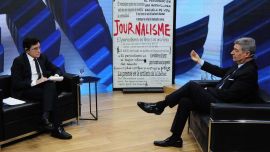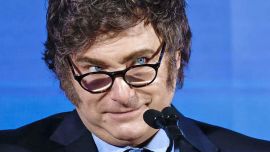Argentina’s government is freezing prices on 1,432 household items in an effort to cool accelerating inflation ahead of November’s midterm election and the holiday season.
Prices will remain fixed until January 7 on the products, a larger list than the roughly 900 items government officials had originally pitched to companies and supermarkets last week. Talks between the government and industry leaders on a price agreement fell through Tuesday after a few days of discussions, with continued resistance from some sectors.
Prior to Tuesday's announcement, the COPAL food industry chamber said that it wouldn't adhere to the measure, saying that while it had the "will" to do so, it would not accept "instances of unilateral definition."
"Faced with various meetings with the Ministry of Internal Trade, COPAL once again ratifies its willingness to collaborate and dialogue for the agreement," the entity said in a statement, while warning that "the conditions to reconcile the possibilities of the sectors in the face of the request for price stabilisation are not guaranteed."
The tensions mark the latest chapter in Argentina’s complicated relations with the private sector, following a failed nationalisation of soybean exporter Vicentin, temporary export bans and a prohibition on firing workers. Domestic Trade Secretary Roberto Feletti offered up a blunt assessment in his statement Tuesday.
“There are factions in the business leadership that aren’t conscious of their privileges and refuse to adopt a collaborative and contemplative attitude on the tough situation that the Argentine people are living through today,” Feletti said in a statement.
On Wednesday, the government published the full list of price freezes. Spanning 880 pages, the list includes some traditional staples such as milk, beef and pasta. But freezes also apply to certain brands of beer, wine, ice cream and chocolate, as well as dog food.
Inflation accelerated past expectations in September with consumer prices rising 3.5 percent from August, putting the annual figure at 53 percent. In just the first nine months of the year, inflation totalled 37 percent, according to official data. Economists surveyed by the Central Bank forecast an annual rate of 48.2 percent.
President Alberto Fernández’s coalition faces a tough midterm election next month after it suffered a major defeat in a primary vote. Price controls are a common policy in Argentina that often prove futile.
– TIMES/BLOOMBERG/AFP























Comments